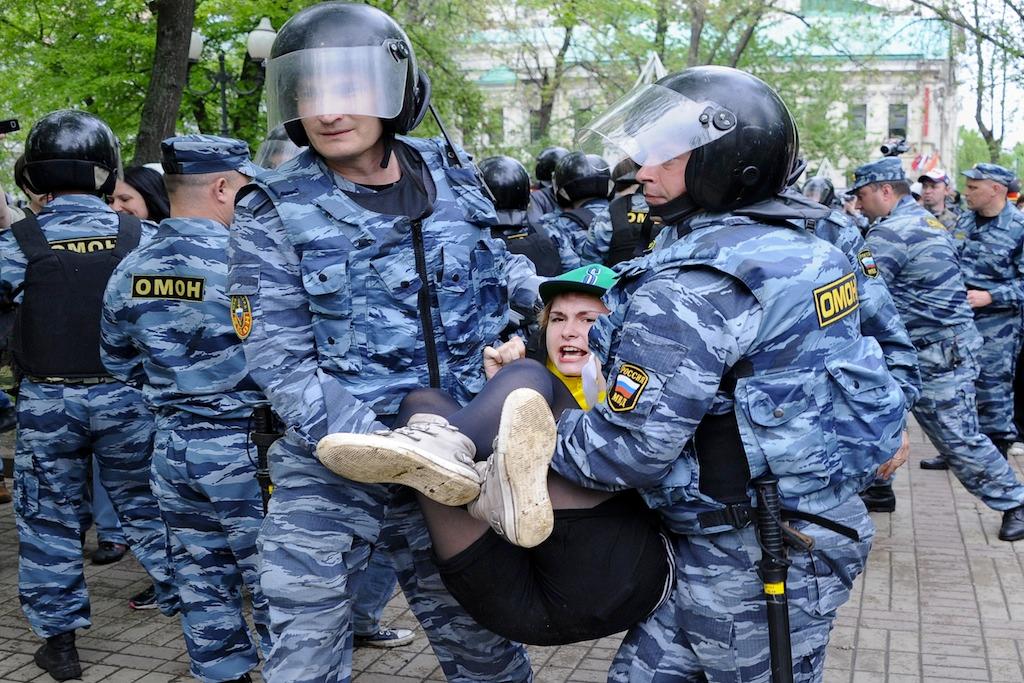Russia leads stifling democracy in Eurasia: Report
Russia is the “vanguard and model” in stifling civil society amid growing popular discontent.
MOSCOW, Russia — Democracy and civil society in Eurasia are increasingly under fire from autocratic rulers seeking to maintain their grasp on power in a quickly changing world, according to a new report by the US think-tank Freedom House.
Writing in its 2013 “Nations in Transit” report, the democracy and human rights watchdog found that leaders of Eurasian countries from Russia and Ukraine to Kazakhstan and Uzbekistan are “strik[ing] more vigorously at perceived adversaries” in response to the recent wave of political turmoil in the Middle East.
Russia, the report adds, served as a “vanguard and model” in 2012 in stifling civil society amid growing popular discontent.
“While previous measures have sought to obstruct or constrain Russian civil society, the new round of initiatives were designed to neuter or eliminate any groups that dealt even tangentially with political or public-policy matters,” the report said.
Those initiatives have included the prosecution of political opponents, such as the feminist punk group Pussy Riot and a group of protesters who face lengthy prison terms for participating in an anti-Kremlin protest last May.
Russia’s parliament, meanwhile, has in short order passed a range of legislation critics say is aimed at stoking fear among activists. It includes a law that increased fines for public protesting, as well as rules requiring Russian NGOs that receive funding from abroad to register as “foreign agents.”
Taken together, the 12 post-Soviet states of Eastern Europe, the Caucasus and Central Asia that fall under the watchdog’s Eurasia region performed worse in 2012 than they did 15 years ago, shortly after the collapse of the Soviet Union, the report found.
The study’s key concerns apart from Russia include the “widespread harassment of dissidents” in Belarus, political prosecution in Kazakhstan and media censorship in Tajikistan.
The three lowest ratings went to Uzbekistan, Turkmenistan and Belarus, respectively, each of which is ruled by an executive with immense powers. All have been accused of deploying massive state repression against critics.
Four more countries qualify as “consolidated authoritarian regimes”: Russia, Azerbaijan, Kazakhstan and Tajikistan.
“The executive authorities in most of these countries have progressively coopted or demolished potential threats to their monopoly on power, including judicial autonomy, legislative oversight, formal political opposition, a politically independent business community, and critical mass media,” Freedom House said.
The report found two “glimmers of hope” in Georgia and Armenia, which won praise for parliamentary elections last year. They exhibited improved competitiveness and greater access to electoral and media resources, the watchdog said.
The “Nations in Transit” report ranks 29 post-communist countries in Central Europe and Eurasia, examining trends in democracy, civil society, media and governance.
Every day, reporters and producers at The World are hard at work bringing you human-centered news from across the globe. But we can’t do it without you. We need your support to ensure we can continue this work for another year.
Make a gift today, and you’ll help us unlock a matching gift of $67,000!
